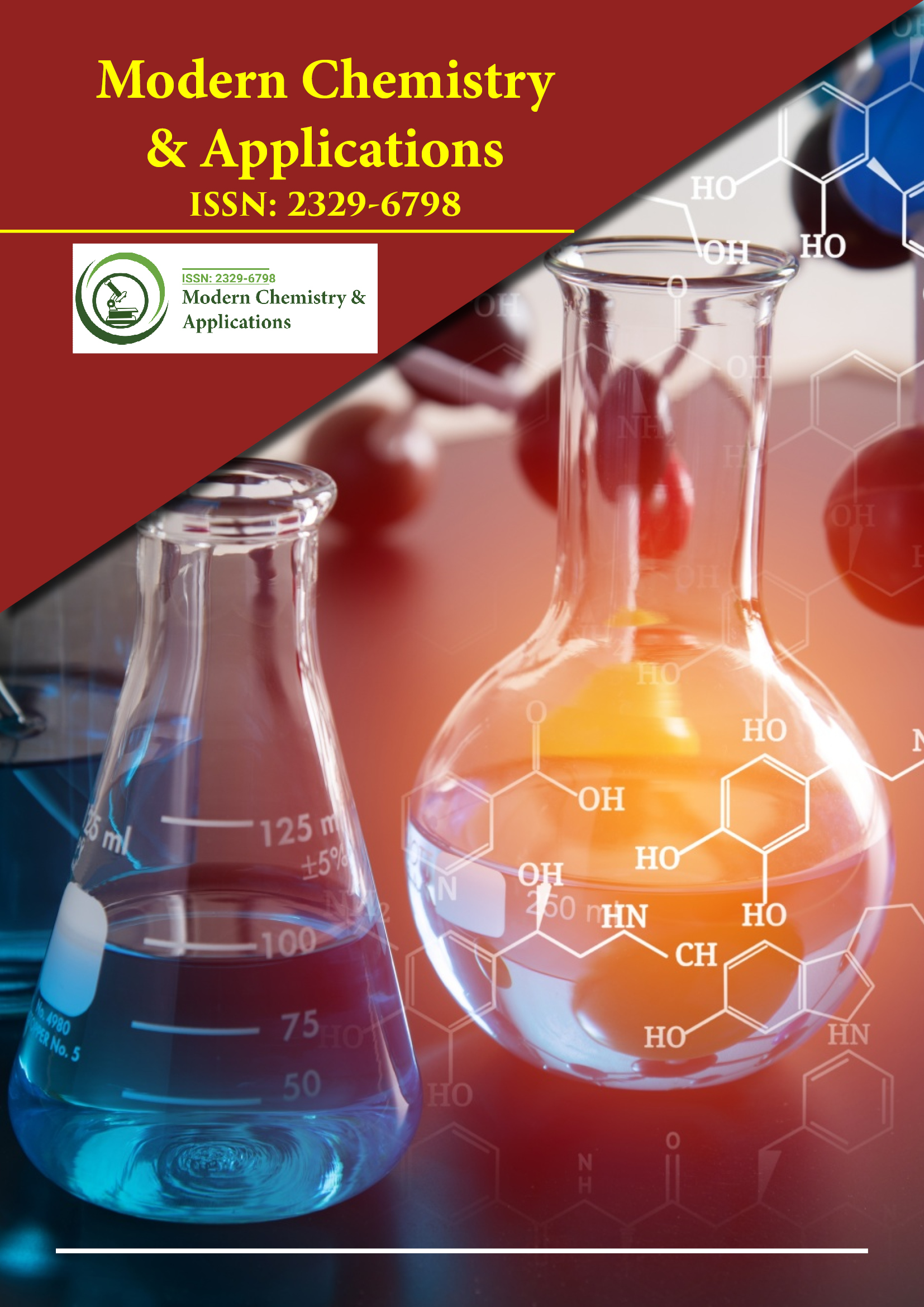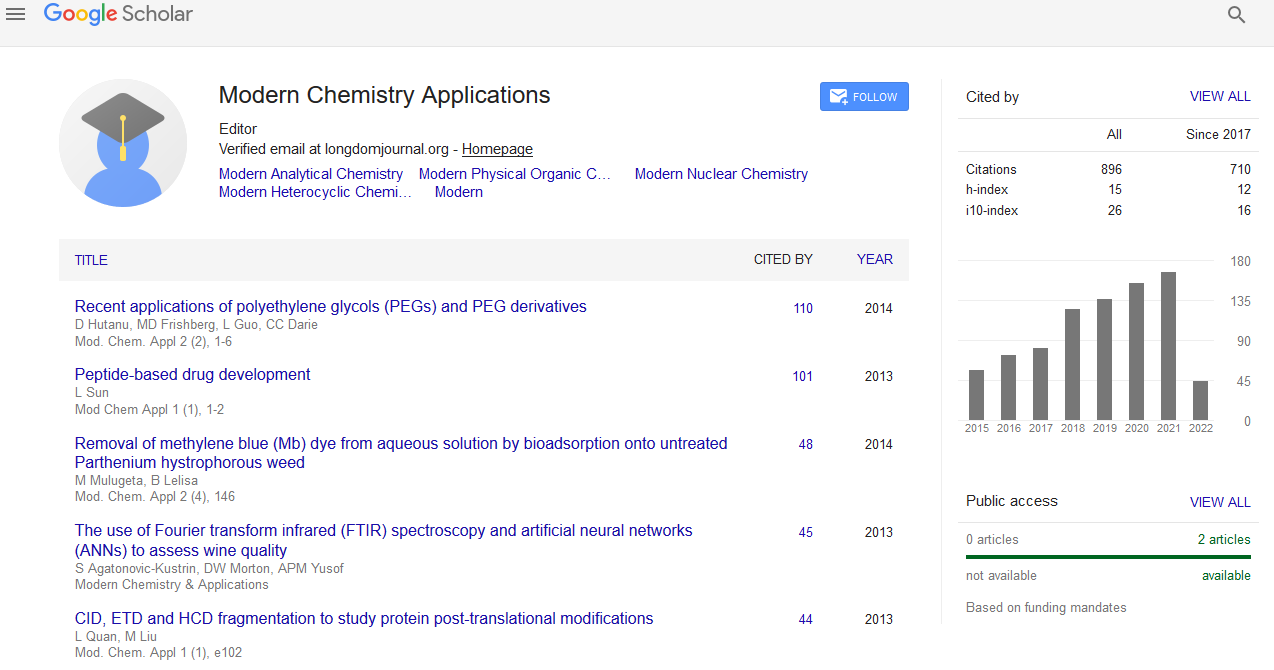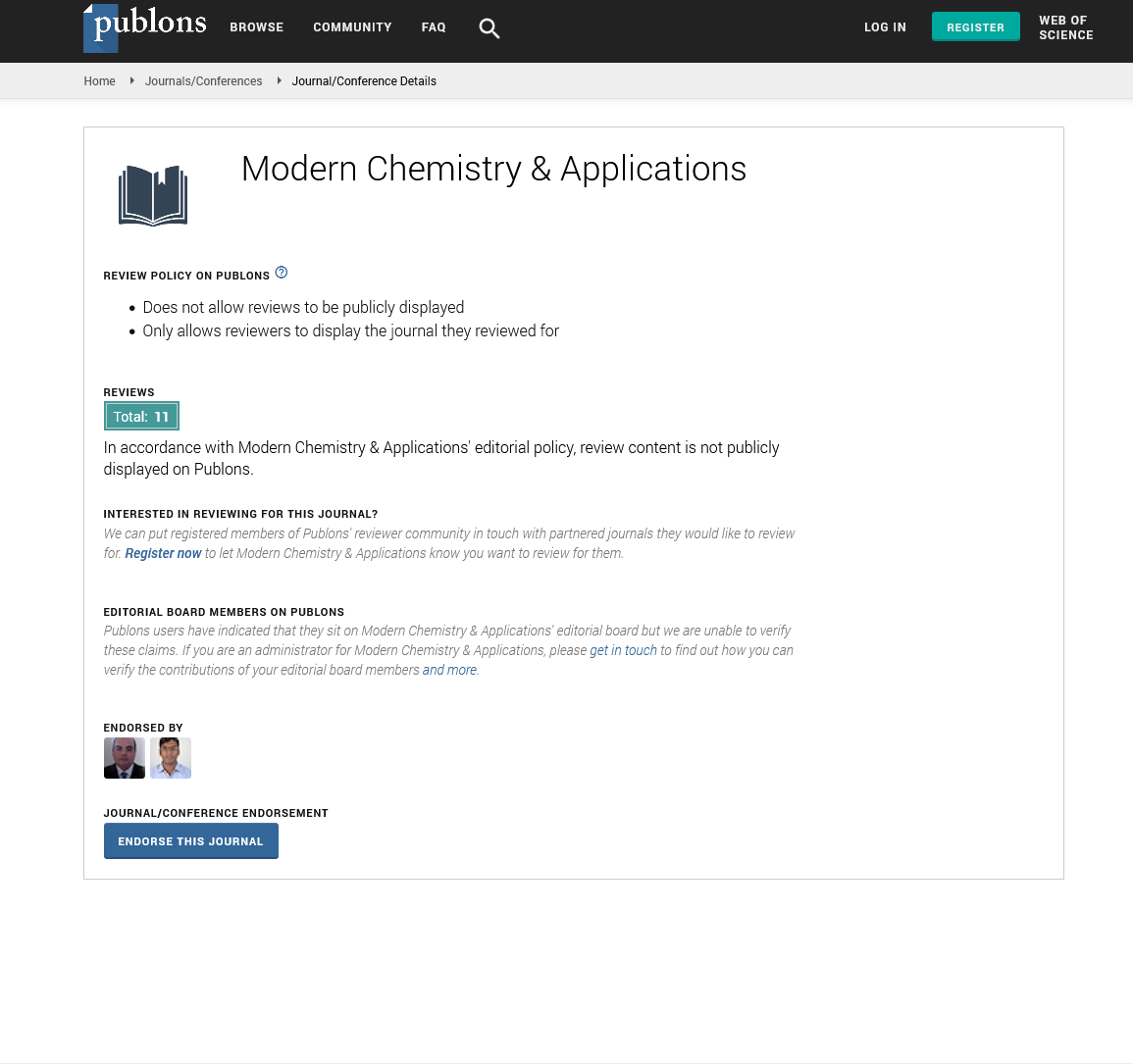Indexed In
- Open J Gate
- JournalTOCs
- RefSeek
- Hamdard University
- EBSCO A-Z
- OCLC- WorldCat
- Scholarsteer
- Publons
- Geneva Foundation for Medical Education and Research
- Google Scholar
Useful Links
Share This Page
Journal Flyer

Open Access Journals
- Agri and Aquaculture
- Biochemistry
- Bioinformatics & Systems Biology
- Business & Management
- Chemistry
- Clinical Sciences
- Engineering
- Food & Nutrition
- General Science
- Genetics & Molecular Biology
- Immunology & Microbiology
- Medical Sciences
- Neuroscience & Psychology
- Nursing & Health Care
- Pharmaceutical Sciences
Perspective - (2023) Volume 11, Issue 6
Significance of Natural Products in Advancements in Medicinal Chemistry
Sunkari Nguyen*Received: 17-Nov-2023, Manuscript No. MCA-23-23665; Editor assigned: 20-Nov-2023, Pre QC No. MCA-23-23665 (PQ); Reviewed: 05-Dec-2023, QC No. MCA-23-23665; Revised: 12-Dec-2023, Manuscript No. MCA-23-23665 (R); Published: 20-Dec-2023, DOI: 10.35248/2329-6798.23.11.440
Description
Medicinal chemistry, a multidisciplinary field at the intersection of chemistry, biology, and pharmacology, is dedicated to designing, synthesizing, and developing compounds that can be used as pharmaceuticals. Among the diverse arsenal of resources available for drug discovery, natural products have played a pivotal role in the development of numerous medicines.
Natural products are chemical compounds derived from living organisms, including plants, animals, and microorganisms. These compounds have been utilized for centuries in traditional medicine, demonstrating therapeutic properties and serving as a wellspring of inspiration for modern drug discovery.
Medicinal chemistry resolves the potential of natural products by employing cutting-edge techniques to isolate, identify, and modify these compounds for therapeutic purposes. The inherent diversity and complexity of natural products offer a rich source of novel drug candidates. The chemical structures of these compounds often possess unique and intricate configurations, making them a valuable starting point for creating new medications.
Plant-derived natural products, known as phytochemicals, have been extensively studied. Compounds such as quinine from the cinchona tree, morphine from the opium poppy, and taxol from the Pacific yew tree are just a few examples that have revolutionized the field of medicine. These compounds have served as the foundation for developing drugs used to treat malaria, pain, and cancer, respectively.
Microorganisms, too, have been a significant source of natural products. Penicillin, the first antibiotic discovered by Alexander Fleming, was derived from the mold Penicillium. The subsequent exploration of microbial compounds has led to the development of a wide array of antibiotics, combating bacterial infections and saving millions of lives.
The process of utilizing natural products in medicinal chemistry involves various stages. First, the compounds are isolated from their natural sources. Advances in technology have streamlined this process, allowing scientists to efficiently extract and purify compounds. Subsequently, the isolated compounds undergo rigorous testing to assess their biological activity and potential medicinal properties.
Once a compound is identified, medicinal chemists starts on the process of chemical modification. This involves altering the structure of the compound to enhance its efficacy, improve its pharmacokinetics, and minimize potential side effects. Through the use of synthetic chemistry techniques, medicinal chemists create analogues or derivatives of the natural product, aiming to optimize its therapeutic value.
Furthermore, advancements in computational chemistry have significantly contributed to the field of medicinal chemistry with natural products. Computational tools assist in predicting the interactions between drug candidates and their biological targets, thereby accelerating the drug discovery process and reducing the time and resources required for experimentation.
However, despite the immense potential of natural products, their utilization in medicinal chemistry presents challenges. One of the major challenges is the complexity of the compounds, often requiring intricate synthesis and modification processes. Moreover, sourcing these compounds sustainably and ethically is a concern to ensure the conservation of biodiversity.
The exploration of natural products in medicinal chemistry continues to be a potential avenue for drug discovery. With the advancement of technology, interdisciplinary collaboration, and a deeper understanding of the biological activities of these compounds, the future holds great potential for resolving the healing power of natural products.
In conclusion, the synergy between medicinal chemistry and natural products has been instrumental in shaping the pharmaceutical landscape. By unlocking the potential of these compounds through innovative research and technological advancements, medicinal chemists continue to facilitate for the development of novel and more effective medicines to address a wide spectrum of health challenges.
Citation: Nguyen S (2023) Significance of Natural Products in Advancements in Medicinal Chemistry. Modern Chem Appl. 11:440.
Copyright: © 2023 Nguyen S. This is an open-access article distributed under the terms of the Creative Commons Attribution License, which permits unrestricted use, distribution, and reproduction in any medium, provided the original author and source are credited.


